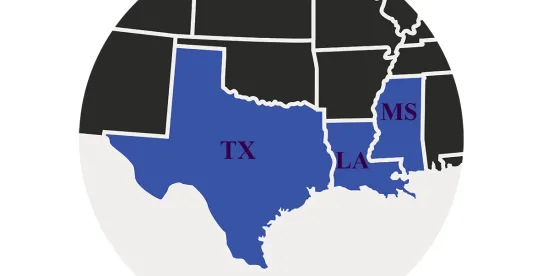Miller Mendel Inc. filed a lawsuit against the City of Anna, Texas (“the City”), in the U.S. District Court for the Eastern District of Texas, alleging infringement of Claims 1, 5, and 15 of U.S. Patent No. 10,043,188 (the “’188 patent”). The ’188 patent primarily pertains to a software system designed to manage pre-employment background investigation processes. Specifically, Claim 1 exemplifies a computerized method that involves: (1) receiving data related to an applicant; (2) storing new applicant information; (3) transmitting an applicant hyperlink; (4) receiving an electronic response from the applicant; (5) determining a reference class; (6) selecting a reference set; (7) transmitting a reference hyperlink; (8) receiving an electronic response from the reference; (9) storing the electronic response from the reference; and (10) generating a recommended reference list.
The court granted the City’s Rule 12(c) motion for judgment on the pleadings, ruling that the asserted claims are ineligible for patent protection under 35 U.S.C. § 101. Additionally, the City filed a motion for attorneys’ fees; however, the court determined that the case was not exceptional and, therefore, did not justify the awarding of attorneys’ fees. Miller Mendel appealed the district court’s judgment on the pleadings, while the City appealed the ruling on attorneys’ fees.
Issue(s)
Did the district court correctly find that patent claims directed to the 10 step method outlined above that utilizes a computer system as ineligible for patent protection?
Is an infringement allegation based on an issued patent that is later found to be ineligible an example of an exceptional case that warrants awarding attorneys’ fees?
Holding(s)
The district court correctly found that patent claims directed to the 10 step method outlined above that utilizes a computer system as ineligible for patent protection.
This case is not exceptional.
Reasoning
Rule 12(c) holding:
The district court accurately applied the Alice/Mayo test to the asserted claims. In the first step, it rightly determined that the claims are aimed at an abstract idea, as the method does not enhance computer capabilities but instead invokes generic processes and machinery. The Federal Circuit has found that these methods, which assist investigators in conducting background investigations through computerized steps like receiving, storing, transmitting, determining, and selecting information, are abstract. This is consistent with past rulings, such as in Trinity Info Media, LLC v. Covalent, Inc., 72 F.4th 1355, 1362 (Fed. Cir. 2023), which deemed the collection, analysis, and display of information as abstract, and in Elec. Commc’n Techs., LLC v. ShoppersChoice.com, LLC, 958 F.3d 1178, 1182 (Fed. Cir. 2020), which found gathering, storing, and transmitting information abstract. The specification further supports this, describing the methods as automating tasks typically involved in pre-employment background checks. Since these tasks were traditionally done by an investigator, they are considered generic processes, making the claim abstract and not an enhancement to computer technology.
Miller Mendel contended that the steps, not being performable “in the mind or by pen and paper,” are not abstract. However, the Federal Circuit dismissed this, stating that the human mind’s incapacity to perform each step does not alone make it patentable. Moreover, merely requiring a computer does not shift the claim’s focus from an abstract idea to a specific improvement in computer functionality. Miller Mendel’s argument that the claims involve a unique data structure enhancing computer data storage and retrieval was also rejected.
Under the second step of the Alice/Mayo test, the Federal Circuit determined that the claims lack additional elements to make them patent-eligible. They merely cite well-understood, routine, conventional activities, involving standard computer functions or basic data-gathering steps. The claims do not hint at anything beyond conventional computer and network components. Additionally, the steps’ order is not innovative, especially since the specification mentions that the method can be performed “in any random order.” Therefore, lacking transformative elements, the claims address patent-ineligible subject matter, and the district court’s decision was correct.
Miller Mendel also argued that the Rule 12(c) motion was improper because the City submitted a declaration that was outside of the pleadings. However, the Federal Circuit rejected this argument, noting that the court did not rely on the declaration.
The City appealed the 12(c) holding, arguing that the court’s findings of invalidity should extend to claim 9. Nonetheless, the Federal Circuit affirmed the court’s decision, pointing out that claim 9 was not asserted by Miller Mendel, and therefore, the court did not have jurisdiction over this claim. Miller Mendel alleged that “one or more claims” were infringed, “including at least claims 1, 5, and 15,” and further narrowed this allegation in its response to the 12(c) motion by stating that it asserted only claims 1, 5, and 15. Consequently, the court’s 12(c) ruling is limited to claims 1, 5, and 15.
Based on the above, the district court correctly dismissed the infringement allegations based on claims 1, 5, and 15 of the ’188 patent.
Attorneys’ Fees
A case is deemed exceptional if it stands out from others with respect to the substantive strength of a party’s litigating position or the unreasonable manner in which the case was litigated. The Federal Circuit held that, even though Miller Mendel’s position on invalidity might have been exceptionally weak, the fact that Miller Mendel was attempting to exercise its patent rights through the USPTO-examined ‘188 patent means the case did not escalate to the level of being unreasonable or vexatious. Consequently, the district court correctly denied attorneys’ fees.



 />i
/>i

